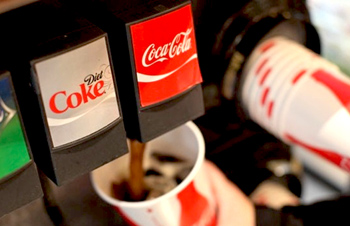 New York, May 6: Coca-Cola says it will drop a controversial ingredient from all its drinks that contain it, not just Powerade.
New York, May 6: Coca-Cola says it will drop a controversial ingredient from all its drinks that contain it, not just Powerade.
The Atlanta-based company says brominated vegetable oil is still being used in some flavors of Fanta and Fresca, as well as several citrus-flavoured fountain drinks. The change will apply to its drinks globally, meaning Canada and Latin America are phasing out the ingredient as well.
A spokesman for Coca-Cola, Josh Gold, noted that the ingredient is not used in many countries.
Brominated vegetable oil, or BVO, had been the target of petitions on Change.org by a Mississippi teenager, who wanted it out of Gatorade and Powerade. The Associated Press reported yesterday that Coca-Cola is dropping BVO from Powerade, following a similar move by PepsiCo's Gatorade last year.
Today, Coca-Cola said in a statement that all its drinks are safe and comply with regulations in the countries where they're sold. It noted that BVO is used to improve the stability of its drinks and prevent certain ingredients from separating.
In coming months, however, the company said it would phase out the ingredient to be consistent with the ingredients it uses around the world. It said it would instead use sucrose acetate isobutyrate, which Coca-Cola said has been used in drinks for more than 14 years, and glycerol ester of rosin, which it said is commonly found in chewing gum and drinks.
In the US, Coca-Cola said it expects BVO to be out of all drinks by the end of the year. Representatives for PepsiCo weren't immediately available to say whether the company uses the ingredient in other drinks.
Even as companies stand by the safety of their products, several have recently changed their recipes as people increasingly look to eat foods they believe are natural. The trend toward natural foods has prompted some to steer clear of ingredients or chemicals that sound unfamiliar, even if they're approved for use by the Food and Drug Administration and have been used by manufacturers for years.






Comments
Add new comment